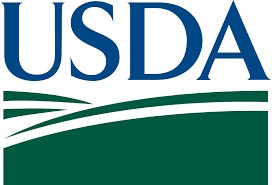Resource Details
Business, Start-Up & Entrepreneur, Workforce
Intermediary Relending Program
This program provides 1 percent low-interest loans to local lenders or “intermediaries” that re-lend to businesses to improve economic conditions and create jobs in rural communities.
Up to $1 million in funding is available to intermediaries. Total outstanding debt from the IRP, to a single intermediary, may not exceed $15 million.
The terms for the intermediary lender are the following:
The interest rate is fixed at 1 percent.
The maximum term is 30 years.
interest-only payments may be permitted for the first three years.
In first 6 months after closing $250,000 or greater of loan funds must be used.
The maximum loan amount available to ultimate recipients is the lesser of $400,000 or 50% of the loan to an intermediary lender. The rates, terms, and payment structure on the loan are set by the intermediary lender in an amount sufficient to cover the cost of operating and sustaining the revolving loan fund.
Eligibility
ELIGIBLE INTERMEDIARY LENDERS:
Eligible intermediary lenders include nonprofits and cooperatives, federally-recognized tribes, public agencies, and cooperatives. Intermediary lenders must have:
The legal authority to operate a Revolving Loan Fund (RLF).
A record of successfully assisting rural businesses and communities, normally including experience making and servicing commercial loans.
The ability to provide adequate assurance of repayment of the loan.
Capitalization or equity sufficient to sustain its lending and business operations.
Majority outstanding interest or membership must be composed of U.S. citizens.
Intermediary and principals must have no Federal delinquent debt.
Unable to finance the fund through its own sources or other conventional financing.
The ability to close the IRP loan within six months of loan approval.
A board consisting of business and civic leaders.
ELIGIBLE ULTIMATE RECIPIENTS
Eligible ultimate recipients include individuals, public or private organizations or other legal entities, given that:
Majority ownership is held by U.S. citizens or permanent residents.
The applicant owes no delinquent debt to the Federal Government.
The applicant is unable to obtain affordable commercial financing for the project elsewhere.
The project is located in an eligible rural area.
The applicant has no legal or financial interest or influence in the work of the intermediary lender.
ELIGIBLE PROJECTS
Funds may be used to:
Promote community development
Establish a new business
Establish and support microlending programs.
Create or retain employment opportunities.
To acquire, construct, convert, enlarge or repair a business or business facility, particularly when jobs will be created or retained.
To purchase or develop land (easements, rights of way, buildings, facilities, leases, materials).
To purchase equipment, machinery or supplies, or make leasehold improvements.
For start-up costs and working capital.
For pollution control and abatement.
For transportation services.
To cover feasibility studies
Professional fees, ie, architects, lawyers, engineers, accountants.
Towards the building of hotels, motels, convention centers.
For educational institutions.
For aquaculture-based rural small business.
To establish revolving lines of credit as described in 7 CFR Part 4274.314.
Related Resources
Wisconsin Cooperative Development Grant
Wisconsin Economic Development Corporation
Arts & Culture, Child Care, Energy, Forestry & Paper, Native Peoples, Transportation, Workforce
The Wisconsin Economic Development Corporation (WEDC) is offering grants to support the development of new and existing cooperatives in Wisconsin, with a goal of fostering the success of current and future cooperatives by supporting planning and exploratory research in advance of making a large investment.
WI Bureau of Environmental and Occupational Health (BEOH)
Wisconsin Department of Health Services
Health & Mental Health, Sustainability, Workforce
The Bureau promotes public health through statewide programs to increase public awareness of environmental and occupational health hazards and disease and works to prevent and control exposure to environmental and occupational health hazards.
DHS Assessment of Chemical Exposure Toolkit
U.S. Department of Health and Human Services
Health & Mental Health, Other, Sustainability, Workforce
The ACE Toolkit contains surveys, consent forms, training materials, and databases that can be easily customized for use in an assessment after a chemical incident.




